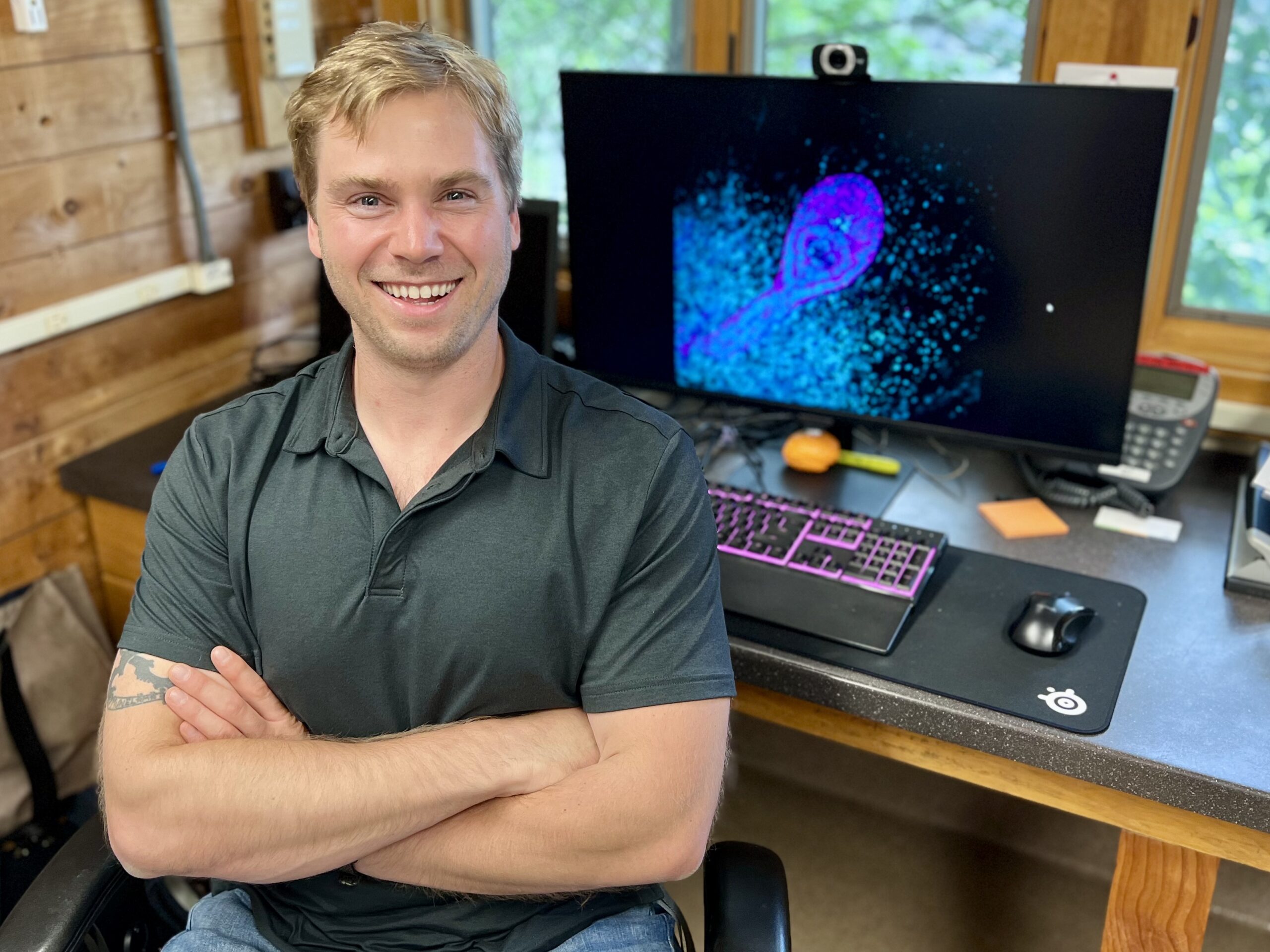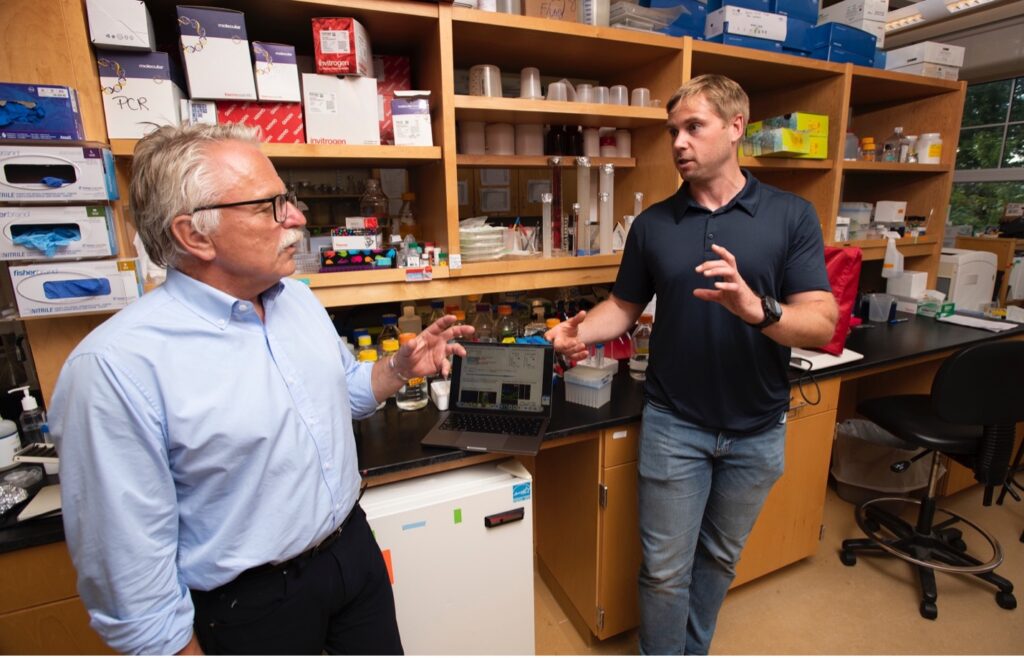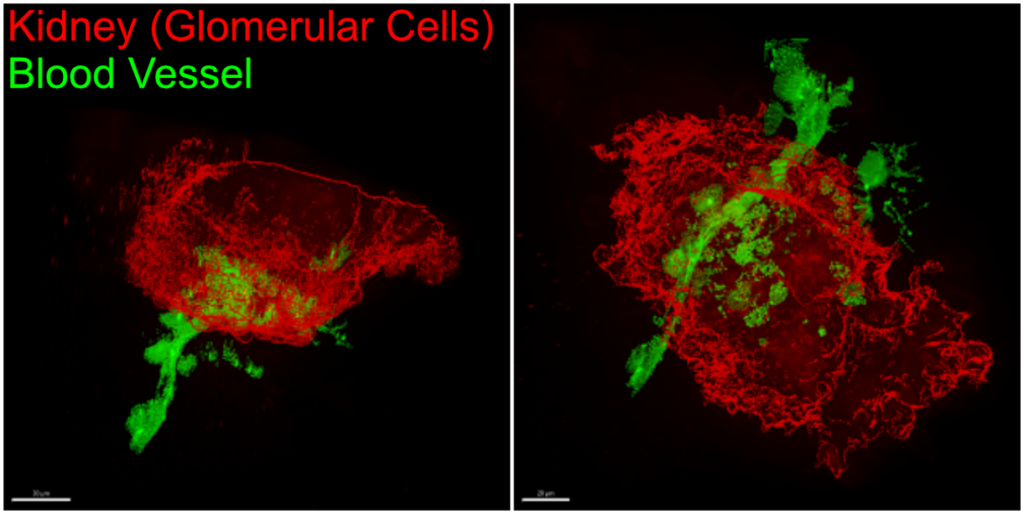
Learning to grow new kidneys
More than 30 million Americans suffer from chronic kidney disease (CKD), including thousands in Maine. And when someone’s kidneys fail, they face limited choices for managing their health: a lifetime on dialysis or finding a suitable (and willing) kidney donor.
At MDI Bio Lab an international research group is doing ground-breaking work needed to create a better alternative: new kidney tissue or even whole kidneys grown from a patient’s own stem cells.
The Bio Lab’s Cory Johnson, PhD, is growing prototype kidneys called “organoids” in carefully tended racks inside a laboratory incubator. The work puts him on the leading edge of an emerging biotechnology that holds extraordinary promise.
“It’s very sci-fi, a frontier of science that’s just getting started,” says Johnson, a Maine native and University of Maine graduate now doing his post-doctoral work at MDI Bio Lab. “I believe that organoids hold the potential for growing organs someday, outside of the body. It’s fascinating.”

And, he adds, it’s not just about satisfying scientific curiosity, “it’s something that can actually help people.”
Today, the demand for kidney transplants far exceeds availability. More than 90,000 patients in the United States are waiting for a kidney transplant, and it takes three-to-five years to find a donor match. Too many people suffering kidney failure die while waiting.
That’s partly due to the difficulty of finding a donor whose kidney won’t be rejected by a patient’s body. Growing a new kidney from a patient’s own stem cells could help solve that problem.
It is a complex challenge. Johnson and his mentor, MDI Bio Lab President Hermann Haller, MD, are making headway on one key factor; how to get a fledgling kidney and blood vessels to grow close to and then attach to each other.
Over a series of experiments this summer, Johnson has managed to grow successive generations of kidney organoids that show preliminary evidence of penetration by blood vessels – a first step in creating a functioning organ system.
He’s documenting and confirming that progress using MDI Bio Lab’s state-of-the-art 3D microscopes and laboratory techniques for identifying specific protein and gene activity at the molecular level.

Under Haller’s leadership, MDI Bio Lab is positioning Maine as a leader in the science of aging and regeneration. He continues to serve as Professor of Medicine at Hannover Medical School in Germany, a European center for kidney transplantation and renal organoid research. Haller sent Johnson there this year to learn the techniques that he is now refining and building upon here in Maine.
For 100 years, scientists at MDI Bio Lab have worked to understand the role of the kidney in maintaining overall health and to develop new diagnostic and therapeutic tools to treat kidney disease.
“While we are fortunate to have dialysis and transplantation as options in treating chronic kidney disease, kidney regeneration is the next transformative step,” Haller says. “If we are successful, our work to grow new kidneys will revolutionize transplantation and improve human health and well-being.”